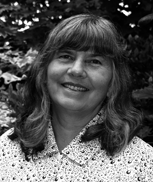That strikes me as a pretty apt description of the priestly calling, as well as the call of every believer, to be deeply in touch with the power of an invisible reality, and to be willing to be a space where that reality is transformed by God into infinite possibilities of leaf, flower and fruit.
But the cost of living this vocation is to be fixed and rooted in the cold winter soil, to stand firm through both storm and drought, to be constant in all weather, to trust that God is with us wherever we may find ourselves, standing alone yet standing for others.
My personal reminder of this call is a baobab tree, or at least a raffia representation of one that I brought back from South Africa. The importance of the baobab first caught my attention when I watched a television documentary filmed in Tanzania. In a remote rural village stood an ancient baobab, already completely hollowed out by the passing of the centuries. Its roots reached deep into the African earth. Its branches stretched out to the brilliant blue skies and the star-laden canopy that have captured the human imagination since Homo sapiens took his first bipedal steps here and told stories around the campfire in the equatorial night.
This was a sacred tree, not only because of its ancient lineage, but because it was the communitys birthing tree. Whenever a pregnant woman came to term, she would enter into the hollowed-out sanctuary of the baobab, give birth to her child and remain there with her young until the umbilical cord fell away. Every child in the village had first seen the light of day within the enfolding shelter of that tree. It had literally borne the fruit of the human family in that place, delighted them with its large white flowers and nourished them with its gourd-like fruit.
When I gaze at my miniature baobab, I rejoice in the fruits that 2007 has borne. Epiphany is a good time to celebrate the gifts life has brought to our own messy stables, and especially those people whose personal rootedness in God has borne fruit that has nourished us.
I think of Puleng, a black South African woman, born and raised in the troubled township of Soweto on the margins (in every sense) of Johannesburg. As a small child and a growing, questioning teenager, she lived through the worst and the best of Sowetos history as well as the post-apartheid struggle to build a just and peaceful future for her nation. Her roots have drawn from Africas earth the knowledge of hunger, fear and anger but also a deep faith and unquenchable hope. She is transforming these raw materials into a powerful ministry for peace and reconciliation.
Pulengs particular gift to the Christ Childthough she would not recognize herself in the role of wise visitor from the Eastis her work to express the wisdom and spirit of the Ignatian Spiritual Exercises in terms of her own native images and stories, so that others might engage with them more fully.
Then comes John. Of Polish descent, his father suffered dreadfully as a prisoner in Siberia when Poland was overrun by the power blocs of wartime Europe, and he became the victim of a brutal Stalinist incarceration. The justice genes live on in John, and the fruit he bears is to be a quiet, insistent, unrelenting investigator and exposer of the human rights violations that lurk undetected beneath the surface of our Western democracies.
And Bridget, whose ancestors suffered the ravages of the Irish famine and subsequent brutalities which must be laid at the door of the British military occupation. Bridget has every reason to be embittered by the memories her life draws up from the soil of history, but she has transformed those memories into the often unregarded service of the border children, who have grown up in the shadow of tensions in Northern Ireland, teaching them to beat their inherited swords into ploughshares for a different world.
These are three of my Magi today. They are three among many. They are who they are because they are living true to their deepest vocations. They are birth-givers, sturdy and courageous, who draw from the God of transformation abiding within them and give freely of the fruit that grows from that deep rootedness.
What might it take to respond to such a vocationthe call to bring to birth, to make incarnate, the riches that we draw upon when we put down the roots of prayer into the soil of Gods mystery? Two things perhaps: first that we really do put down those deep roots, taking the time to be still, in prayer, before the mystery we call God, and then that we allow the fruit to be Gods concern and not ours. We may never know how the tree of our life bears fruit, or for whom, but we are asked simply to entrust the fruiting to God.
May the hollows of our own hearts become spaces of transformation where God can come to birth in new ways for planet earth in 2008.








